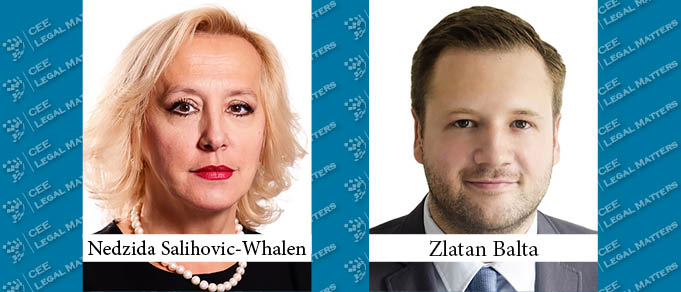Squeeze-out of minority shareholders is an important concept for joint stock companies in Bosnia and Herzegovina (BiH). In the previous socialist system, many then-state-owned joint stock companies issued employee stocks as a form of partial privatization, leading to some companies having hundreds of minority shareholders with miniscule amounts of shares. This complicated the management of these companies, as majority ownership changed from state to private, since many small shareholders are unreachable, as they may be deceased or have relocated with unknown addresses. This situation often makes squeeze-outs essential for majority shareholders in order to efficiently manage these companies.
BiH is a complex state, consisting of the entities of the Federation of Bosnia and Herzegovina (FBiH) and Republika Srpska (RS), and the self-governing Brcko District (BD). As each has competence for regulating securities in their jurisdictions, BiH has three securities regulators and three sets of laws on squeeze-outs, with application depending on the company seat.
The regulation of squeeze-outs is fairly similar in FBiH and BD, but it is substantially different in RS.
FBiH and BD regulate squeeze-outs by the Laws on Takeover of Joint Stock Companies (the “Law on Takeover”), and a squeeze-out can be conducted only within three months after expiry of the takeover bid. This can be a mandatory or voluntary takeover bid, and the necessary shareholding threshold for squeeze-out is that the majority shareholder holds at least 95% of the shares with voting rights of the target after the takeover bid.
Although RS also has a Law on Takeover, squeeze-outs are regulated by the Companies Act and are not tied to a prior public takeover bid. A squeeze-out can be performed at any time, provided that the majority shareholder holds at least 90% of the shares of the target, regardless of how they were acquired.
The regulations in FBiH, RS, and BD differ in terms of the kinds of joint stock companies to which they apply. In FBiH they apply to: (a) companies that have made an initial public offering; (b) listed companies (provided that shares were traded in the previous six months); and (c) companies with a share capital of at least BAM 2 million (approximately EUR 1 million) and at least 30 shareholders. In the BD they apply to companies whose shares are traded on regulated markets. In the RS the squeeze-out right belongs to all joint stock companies.
Moreover, in FBiH and BD, the squeeze-out is performed by the relevant securities registries following the majority’s shareholder request and based on a contract with the majority shareholder. The advantage of this approach is that it significantly reduces the ability of minority shareholders to challenge the squeeze-out.
In RS, however, the majority shareholder must obtain a prior decision on squeeze-out, adopted by the general assembly of the target company. After this decision is registered with the companies’ register of the relevant court, the registration with the securities registry and the transfer of the shares may occur. Minority shareholders can thus potentially challenge the decision on the squeeze-out. However, challenges from the minority shareholders based only on dissatisfaction with the amount of compensation cannot prevent the squeeze-out.
In all three jurisdictions, the majority shareholder must secure fair consideration to the minority shareholders and deposit the funds or provide a bank guarantee to conduct the procedure.
Therefore, as seen in this brief overview, within BiH three sets of laws and two different regimes on squeeze-out exist. While such regulatory differences provide challenges, they can also constitute an opportunity. For example, companies seated in FBiH or BD which cannot achieve the necessary 95% shareholding to conduct a squeeze-out procedure in these jurisdictions could potentially move their seat to RS to fall within the jurisdiction of the RS Companies Act, which allows a squeeze-out with only a 90% shareholding.
Although this would be a complex and time-consuming operation, if the squeeze-out is of strategic importance, it may offer an option to companies which would otherwise not be able to conduct a squeeze-out.
By Nedzida Salihovic-Whalen, Partner, and Zlatan Balta, Senior Associate, CMS Reich-Rohrwig Hainz, Bosnia and Herzegovina
This Article was originally published in Issue 7.12 of the CEE Legal Matters Magazine. If you would like to receive a hard copy of the magazine, you can subscribe here.

















